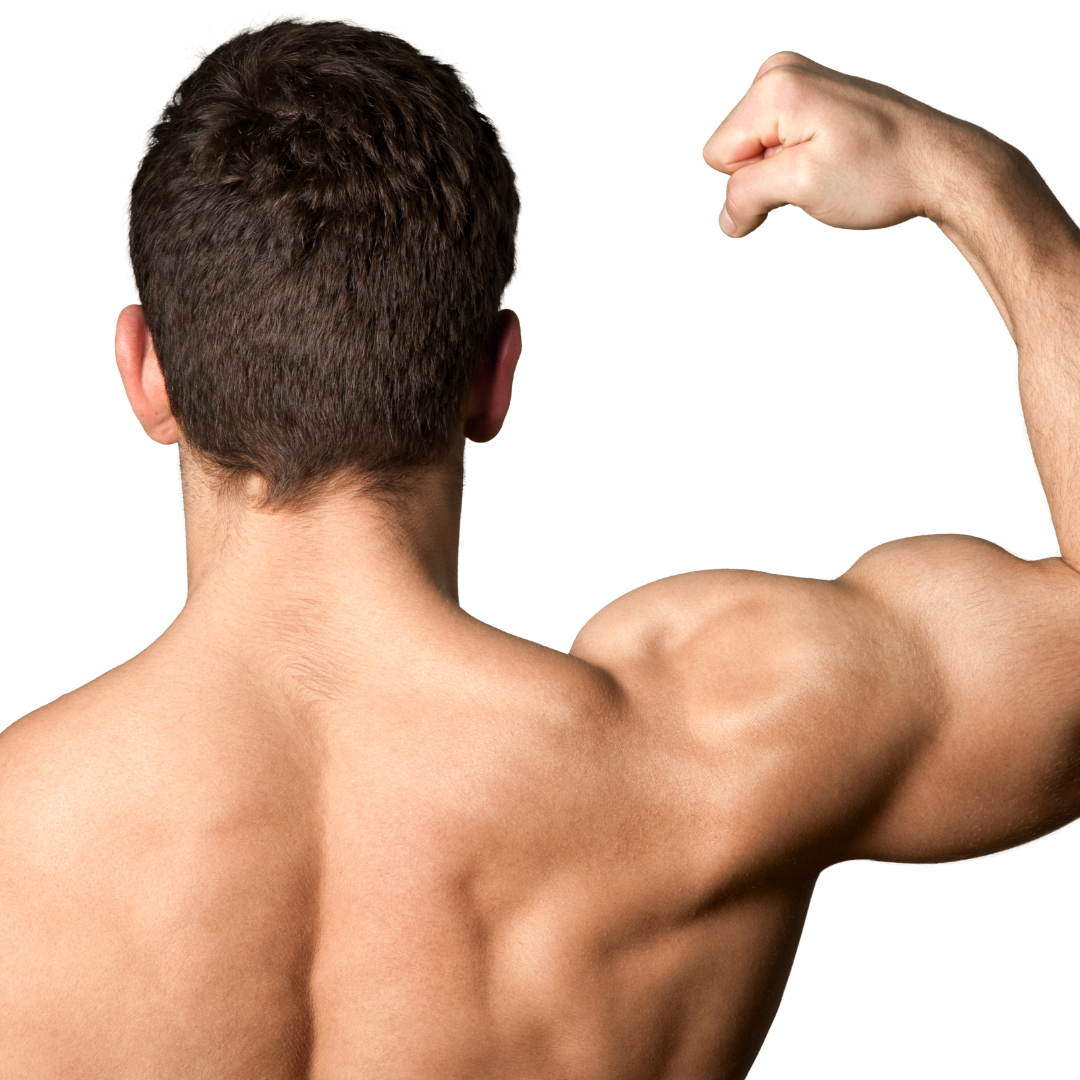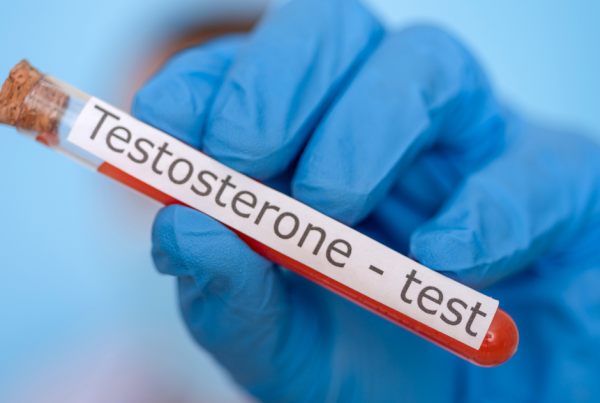Testosterone plays a crucial role in the development and maintenance of muscle mass in both men and women. Here’s how testosterone helps you gain muscle:
- Stimulation of Protein Synthesis: Testosterone acts on muscle tissue by stimulating the synthesis of proteins, which are the building blocks of muscle fibers. This process, known as protein synthesis, is essential for muscle growth and repair. Testosterone promotes the production of new proteins within muscle cells, leading to an increase in muscle size and strength.
- Enhancement of Muscle Fiber Growth: Testosterone promotes the growth of muscle fibers, particularly type II muscle fibers, which are responsible for generating force and power during strength training exercises. By increasing the size and number of muscle fibers, testosterone enhances muscle mass and improves muscle function, allowing for greater strength and power output.
- Activation of Androgen Receptors: Testosterone exerts its effects on muscle tissue by binding to androgen receptors located within muscle cells. Once bound to these receptors, testosterone initiates a cascade of cellular signals that promote muscle growth and repair. This interaction between testosterone and androgen receptors is essential for the anabolic, or muscle-building, effects of testosterone.
- Reduction of Muscle Breakdown: Testosterone has anti-catabolic properties, meaning it helps prevent the breakdown of muscle tissue. By inhibiting the activity of catabolic hormones such as cortisol, testosterone helps preserve muscle mass and prevent muscle loss, particularly during periods of intense exercise or calorie restriction.
- Increase in Muscle Strength: In addition to promoting muscle growth, testosterone also enhances muscle strength by improving neuromuscular function and increasing muscle fiber recruitment. Testosterone increases the production of neurotransmitters and enhances the sensitivity of motor neurons, leading to greater muscle activation and force production during resistance training exercises.
- Facilitation of Exercise Recovery: Testosterone plays a role in exercise recovery by promoting the repair and regeneration of muscle tissue following strenuous exercise. Testosterone increases the production of growth factors and cytokines that support tissue repair and reduce inflammation, allowing for faster recovery and adaptation to exercise-induced muscle damage.
- Indirect Effects on Body Composition: Testosterone also influences body composition by increasing metabolic rate, promoting fat loss, and enhancing insulin sensitivity. By favorably altering body composition and increasing lean body mass, testosterone indirectly contributes to muscle gain and improved physical performance.
In summary, testosterone plays a multifaceted role in promoting muscle growth and strength by stimulating protein synthesis, enhancing muscle fiber growth, activating androgen receptors, reducing muscle breakdown, increasing muscle strength, facilitating exercise recovery, and exerting indirect effects on body composition. Optimizing testosterone levels through lifestyle interventions, such as regular exercise, adequate sleep, balanced nutrition, and stress management, can help maximize muscle growth and support overall health and well-being.







